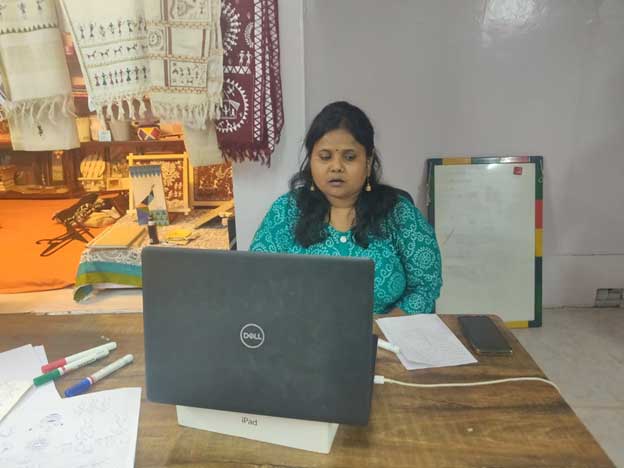Protecting Workers & Enabling a Green Recovery from COVID-19

UNITED NATIONS, Mar 01 (IPS) - 2022 is a decisive year for all of us as recovery prospects remain highly uncertain.
Global human development has witnessed a decline for the first time since the measurement began in 1990. As UNDP’s new Special Report on Human Security also reveals, 6 in 7 people worldwide are plagued by feelings of insecurity.
The pandemic has placed employer and worker organizations under increased pressure. It is posing new challenges with respect to safeguarding workplace safety and health, including in but not limited to frontline and other sectors critical to the day-to-day functioning of economies and societies, and ensuring respect for labour rights more generally, including in digitally enabled remote work arrangements which have expanded substantially during the crisis.
At the same time, sectors such as tourism and hospitality, culture, aviation, and some manufacturing and personal services continue to struggle, as do many smaller firms, resulting in many workers shifting from formal to informal and often insecure employment where labour protections, tax administration and social protection is considerably weaker.
Redoubling our efforts to effectively protect and empower vulnerable workers and enterprises, particularly those in the informal economy is clearly paramount.

Whilst this requires action on multiple fronts, there are four key levers to address the challenges:
First, data and analytics. We need more, better granular data to understand the realities and risks facing vulnerable workers and businesses, especially those in the informal economy. Efforts towards better understanding the ecosystems in which informal workers and businesses operate and building evidence, including through expanding labor market and Micro-Small and Medium Enterprises (MSME) databases, should continue alongside efforts to bring the voice of workers and businesses into the mainstream.
Second, digital transformation. We need digital solutions that point to the potential of digital technologies, products and platforms. Our review of the social protection response to COVID-19 in the global South clearly indicates that greater investments in digitized registries, on-line mobile registration platforms, as well as digital delivery are instrumental to improve outreach and access for uncovered groups, including informal workers.
Likewise, digital solutions hold great promise for increasing the productivity and resilience of MSMEs, through expanding their access to financing, skills and market opportunities.
Uganda, for instance, has helped on-boarding over 3,500 informal vendors on a leading African e-commerce platform (Jumia) who are now selling over 300,000 products online and have doubled their daily turnover. The digital move gets obvious traction, and there is scope for scaling up.
Cambodia is accelerating digital transformation with over 1,500 MSMEs transitioning to e-commerce for business continuity, livelihoods, and employment. This secured jobs for 6,527 people (41% women).
Third, fostering gender equality and inclusion. We need to massively invest in digital and financial literacy while closing the gender digital divide. 2.9 billion women, mostly in developing countries, have no access to the internet. Our collective action should seek to fully protect and empower women workers and women-owned enterprises, particularly those in the informal economy. Integrating the needs of migrant workers and people with disabilities is another imperative.
Fourth, greater focus on resilience and sustainability. Sustaining enterprises and their capacity to preserve and create jobs requires improving their capacities to better prevent, anticipate and manage shocks. Equally critical is the need to encourage more environmentally and socially sustainable business practices.
For example, in India, a circular economy creates value from plastic waste. Ghana’s multi-stakeholder ‘Waste’ Recovery Platform connects all actors, formal and informal, public and private across waste management value chain and also create decent green jobs.
While considering pathways towards recovery, the informal economy cannot merely be approached from a ‘vulnerability’ or ‘deficit’ lens. The informal economy is an untapped opportunity to chart pathways for prosperity for all. It is also a world of innovation and creativity, with many invisible contributions to the Sustainable Development Goals.
One enabler to charting such pathways is to harness digital transformations, while connecting it to green transitions. Digital solutions can significantly improve informal actors’ access to social protection, skills, markets, trade, and financial opportunities.
Moreover, efficiency and productivity gains enabled by digital technologies, products and platforms and on-line one-stop shops, that bring together several registration procedures to accelerate the transition to larger, formal firms with greater scope to create jobs.
We need to move away from short-term towards long-term action that can spur transformative change in health and social protection systems, the world of work and business ecosystems.
Follow @IPSNewsUNBureau
Follow IPS News UN Bureau on Instagram
© Inter Press Service (2022) — All Rights Reserved. Original source: Inter Press Service
Where next?
Browse related news topics:
Read the latest news stories:
- ‘Noboa Did Not Receive a Blank Cheque: He Will Have to Show Tangible Results’ Thursday, April 24, 2025
- UN Warns of an Imminent Collapse in Haiti Thursday, April 24, 2025
- This Election Campaign Offers Two Opposing Visions of How to Tackle Insecurity Thursday, April 24, 2025
- Rampant Tourism, Climate Change Threatens Varkala's Unique Geodiversity Thursday, April 24, 2025
- A Nation Bleeds While the World Watches: The Tragedy in Sudan Must End Thursday, April 24, 2025
- African Countries Still Underfunding Health by as Much as 50 Percent Thursday, April 24, 2025
- Outrage as Russian overnight attacks on Ukraine cities kill at least nine civilians Thursday, April 24, 2025
- UN Chief, Brazil Gather World Leaders to Reaffirm Commitments Paris Agreement Wednesday, April 23, 2025
- Climate Groups Report 2025 Is Unlikely To Be Hotter Than 2024 Wednesday, April 23, 2025
- Chel Snakehead: A Fish That Time Forgot, Rediscovered Wednesday, April 23, 2025